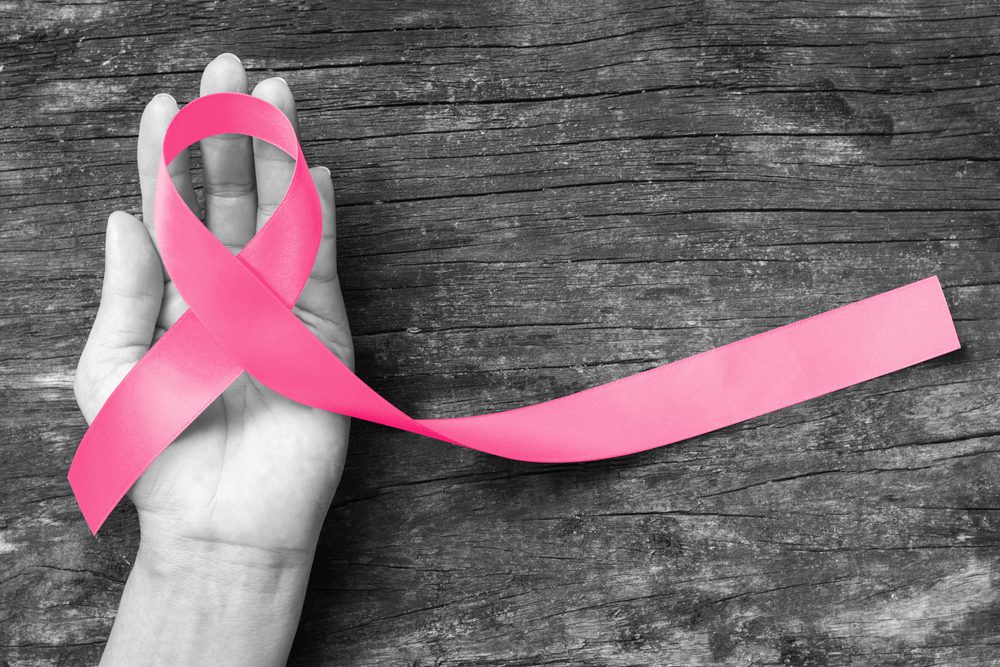The Ultimate Guide to Breast Cancer Prevention. Since breast cancer is the most frequently diagnosed cancer and the leading cause of cancer death in women globally, it strikes fear in many women. According to the American Cancer Society, it is the most common cancer in females in the United States and the second most common cause of cancer death in women.
Some think it is hereditary in nature, however only 10 percent are associated with a positive family history. The good news is that most have to do with lifestyle and the risk factors can be modified.
Here are some of the risk factors that you can modify:
Obesity Risk
Obesity is associated with an increased risk of breast cancer, particularly in women who do not use hormone therapy. Perimenopause is the period of time when progesterone levels drop or become erratic and can precede menopause by 10 or more years. Being overweight and gaining weight during perimenopause has been consistently associated with a higher risk of breast cancer among women in menopause.
The reason for this is that women will continue to make testosterone even during menopause. Testosterone converts to estrogen in fat tissues. The more fat, the more estrogen, however it doesn’t make the estrogen that controls hot flashes and preserves bone, it makes estrone. Estrone, is an inflammatory estrogen and is made even if a woman is not on hormone replacement. This is a very inflammatory hormone that increases the growth of breast tissue and inflammation is the root cause of many illnesses including cancer. The more fat tissue, the greater the levels of this inflammatory form of estrogen.
Sedentary Lifestyle
Studies showed that the most physically active women had a lower risk of breast cancer compared with women who were the least active. Regular physical exercise may protect against breast cancer due to hormonal influences such as reducing serum estrogens, insulin, and insulin growth factor-1 levels.
Alcohol Risk
Alcohol consumption is associated with an increased risk of breast cancer. The more women drank, the higher the risk.
Smoking
The earlier you start to smoke, the longer you continue and the number of packs you smoke increases your risk of breast cancer. While most of the studies showed that women who smoked also drank alcohol, there was still an increased risk of breast cancer in women who smoked but did not consume alcohol.
Diet
A diet rich in fruits and vegetables, fish, and olive oil may result in a lower risk of breast cancer; however, the influence of dietary fat and red meat is not clear.
Age
The older you are, the greater the risk. Therefore, modifying your risk factors BEFORE you reach the age of highest risk is key. Here are the statistics from the Surveillance, Epidemiology, and End Results (SEER) database, regarding the probability of a woman developing breast cancer in the United States
- Birth to age 49 – 2.0 (1 in 51 women)
- Age 50 to 59 – 2.3 (1 in 43 women)
- Age 60 to 69 – 3.5 (1 in 29 women)
- Age 70 and older – 6.7 (1 in 15 women)
- Birth to death – 12.4 (1 in 8 women)
Dense Breasts
Women with dense breast tissue, have a four to five times higher risk of breast cancer compared with women of similar age with less or no dense tissue. Increased breast density is not associated with mortality from breast cancer Breast density is an inherited trait and can be influenced by hormone replacement.
Insulin Risk
The Women’s Health Initiative reported that higher insulin levels were associated with an increased risk of breast cancer in postmenopausal women who did not take menopausal hormone therapy. These women were not diabetic. You can influence insulin levels by a diet low in simple or processed carbohydrates. In addition, sugar and by keeping your cortisol, the stress hormone in check. Any dis- stress will raise cortisol which will raise blood sugar, which will raise insulin.
Estrogen Metabolites
Estrogen has to be broken down by the liver to be eliminated. Even women who are not on hormone replacement therapy will make estrone, a type of estrogen in their fat. If it is broken down into a form called 4 hydroxy estrogen (4-OH estrogen) it can damage DNA which results in mutations that can result in cancer as well as free radicals that also damage tissues. The good news is that these metabolites can be measured and modified with diet and supplements.
 Hormone Replacement Therapy – some surprising facts!
Hormone Replacement Therapy – some surprising facts!
After that, higher insulin levels in women not on hormone replacement therapy had an increased risk of breast cancer. Women not on HRT can get breast cancer but does HRT increase the risk? Well that depends on the type. An analysis of the E3N cohort study looked at the effects of different HRT regimens. Firstly, found that synthetic progestins differ in chemical structure. Secondly, metabolism and potency and they produced different responses in the breast depending on dose and duration of treatment.
Estrogen alone without any form of progesterone (natural or synthetic) increased the risk of breast cancer. This is classically given to women who had a hysterectomy. However, the combination of a synthetic progestin with estrogen increased the incidence of breast cancer even more than estrogen alone but the combination with bioidentical progesterone did not. Women on the combination of bioidentical micronized progesterone and estrogen had the same risk of the normal population.
Other risk factors
Women with a family history of breast cancer had about twice the risk. Therefore, if a woman had one first-degree relative who had breast cancer. Furthermore, three times the risk if she had two first-degree relatives with a history of breast cancer
The risk factors that can’t be modified are age, height, race, sex and family history. Although, most of the other factors CAN be modified. Older, tall, white females have the greatest risk.
Moreover, reduce body fat, have regular physical activity, don’t smoke, eat a diet rich in fruits, vegetables, fish and olive oil, limit alcohol consumption, get your estrogen metabolites measured and modify them through diet. Take supplements and get screened for early detection. Therefore, you are doing all you can to reduce your risk of breast cancer. If you are considering hormone replacement therapy, find a functional medicine physician who has experience with administering bioidentical hormones.






She is a recognized and award-winning holistic, functional, integrative and anti-aging healthcare practitioner, speaker and author, and has been featured in ABC News, Forbes, WOR Radio and many media outlets to spread the word that you can live younger and healthier at any age.